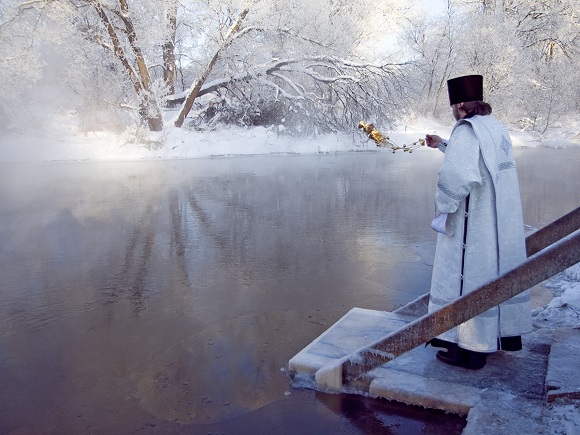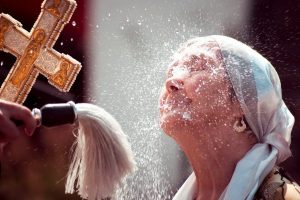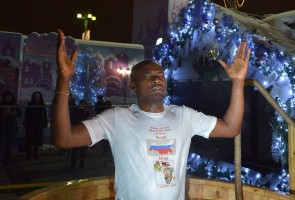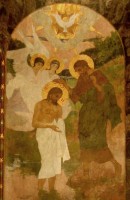 Those of you who listened attentively to the Gospel reading at the Divine Liturgy today could not help but notice the stern words of St. John the Forerunner. Let me remind you, brothers and sisters and everyone here present at the Great Blessing of the Waters, of the Prophet’s strict and castigating words addressed not only to the Jews, but to all of us standing here in church: Then said he to the multitude that came forth to be baptized of him, O generation of vipers, who hath warned you to flee from the wrath to come? Bring forth therefore fruits worthy of repentance, and begin not to say within yourselves, We have Abraham to our father: for I say unto you, That God is able of these stones to raise up children unto Abraham (Luke 3:7-8).
Those of you who listened attentively to the Gospel reading at the Divine Liturgy today could not help but notice the stern words of St. John the Forerunner. Let me remind you, brothers and sisters and everyone here present at the Great Blessing of the Waters, of the Prophet’s strict and castigating words addressed not only to the Jews, but to all of us standing here in church: Then said he to the multitude that came forth to be baptized of him, O generation of vipers, who hath warned you to flee from the wrath to come? Bring forth therefore fruits worthy of repentance, and begin not to say within yourselves, We have Abraham to our father: for I say unto you, That God is able of these stones to raise up children unto Abraham (Luke 3:7-8).
Josephus Flavius, the Jewish historian, testified to the fact that John the Forerunner’s spiritual authority over his contemporaries was so great that “the people flocked to him in great numbers.” Even the Pharisees were compelled to go to him in the desert, although hardly with a feeling of sincerity. A Pharisee is the type of person of whom the Holy Apostle Paul speaks in his Second Epistle to Timothy: For the time will come when they will not endure sound doctrine; but after their own lusts shall they heap to themselves teachers, having itching ears; And they shall turn away their ears from the truth, and shall be turned unto fables (2 Timothy 4:3-4).
Pharisaism as a way of life is often present in our own reality. An enormous crowd of people stood alongside John on the banks of the Jordan desiring to receive the baptism of repentance. The thirst for spiritual renewal was enormous; the simple people, publicans, and soldiers standing by the river knew that external observance of the Law was not enough for salvation. And the people asked Him, saying, What shall we do then? (Luke 3:10). The contemporaries of John the Forerunner received a clear answer. We too, brothers and sisters, know what we need to do and how to be saved. The Great Blessing of the Waters, which we will now perform by God’s mercy, is directly related to our personal repentance. Let us not entertain the false conviction that by being mechanically sprinkled with the blessed water, or by drinking it, that we guarantee our purification. Why is it that, although taking part in the Blessing of the Waters year after year, and communing of this great holiness, we remain the same as before? It is because we do not desire to bear the saving yoke of repentance.
Brothers and sisters, I hope that by drawing this great and holy water today, we might help the Lord to enter our life, consecrating it, and rendering it worthy of God’s presence therein.
Translated from the Russian
You might also like:
















